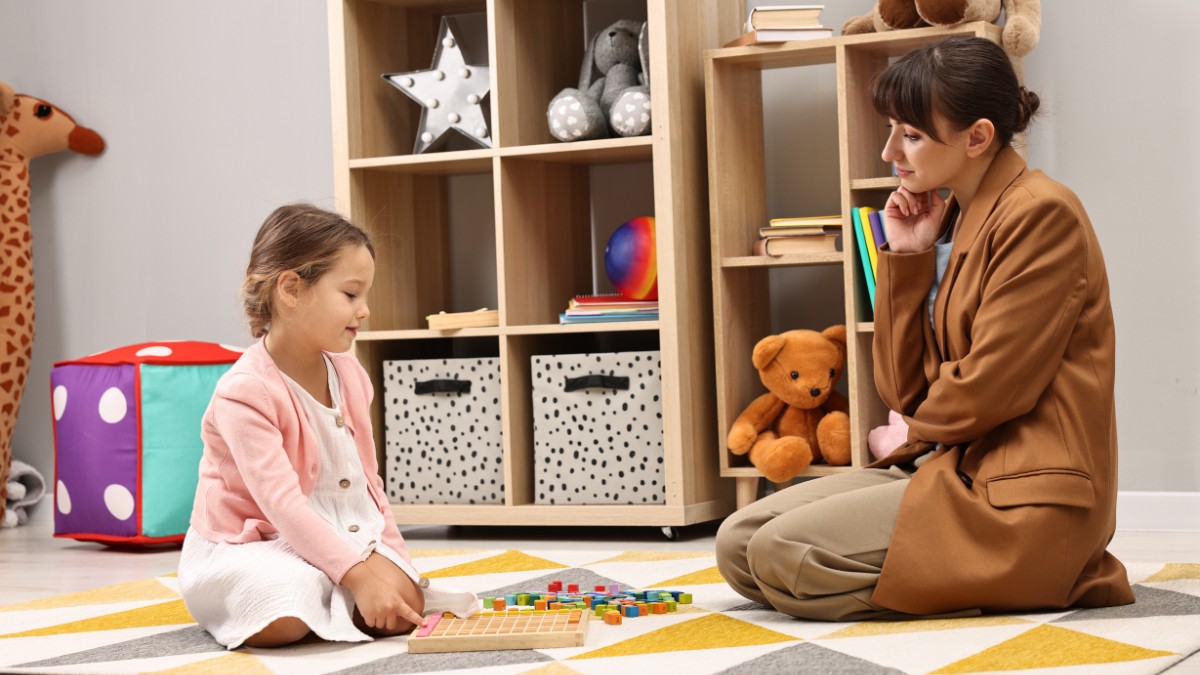What is Neurotypical?
Unraveling the definition of neurotypical: understanding common behaviors and promoting inclusivity. Discover what it means to be neurotypical.
.avif)
What is Neurotypical?
Understanding Neurotypical
To better understand the concept of neurotypicality, it is essential to delve into its definition and explore the characteristics associated with neurotypical individuals.

Defining Neurotypical
Neurotypical is a term used to describe individuals whose neurological development and patterns of thinking and behavior are considered typical or within the range of what is considered normal in society. In other words, neurotypical individuals have brain functions and behaviors that align with the majority of the population.
Characteristics of Neurotypical Individuals
Neurotypical individuals exhibit a range of characteristics that are commonly observed in the general population. It's important to note that these characteristics may vary from person to person, as everyone is unique. Here are some common traits often associated with neurotypical individuals:
It's important to note that being neurotypical does not mean being superior or better than individuals who are neurodivergent. Neurotypicality is just one aspect of the diverse human neurology spectrum. By understanding the characteristics of neurotypical individuals, we can foster inclusivity and promote a better understanding of the varying ways in which individuals experience and interact with the world.
Neurodiversity
Neurodiversity is a concept that promotes the acceptance and celebration of neurological differences in individuals. It recognizes that every individual, regardless of their neurotype, has unique strengths, abilities, and perspectives to offer. In this section, we will explore the importance of embracing these differences and recognizing neurodiversity in society.
Embracing Differences
Embracing neurodiversity means embracing the diversity of neurological conditions, such as autism, ADHD, dyslexia, and others. It involves moving away from the notion that there is a "normal" or "typical" brain, and instead recognizing and valuing the different ways in which individuals' brains are wired.
By embracing neurodiversity, society can foster inclusivity and create an environment that supports the needs and abilities of all individuals, regardless of their neurotype. It encourages the understanding that neurological differences are not deficits or disorders, but rather natural variations of the human experience.
Recognizing Neurodiversity in Society
Recognizing neurodiversity in society involves acknowledging and appreciating the contributions and perspectives of neurodivergent individuals. It is about creating a culture that values and includes individuals with different neurological traits and abilities.
To promote recognition of neurodiversity, it is important to raise awareness and challenge stereotypes and stigmas associated with neurological conditions. By doing so, we can create a more inclusive society that embraces the strengths and talents of all individuals, regardless of their neurotype.
A society that recognizes neurodiversity benefits from the unique skills and perspectives that neurodivergent individuals bring. These individuals often excel in areas such as pattern recognition, creativity, problem-solving, and attention to detail. Embracing neurodiversity allows society to tap into these strengths and create opportunities for individuals to thrive.
Recognizing neurodiversity in society is a step towards building a more inclusive and accepting world. It encourages us to appreciate the richness of human diversity and ensures that everyone has the opportunity to be valued and included.

Neurotypical Traits
Neurotypical individuals exhibit certain common behaviors and patterns that are considered typical within society. Understanding these traits can help promote awareness and foster greater understanding of neurodiversity.
Common Behaviors and Patterns
Neurotypical individuals often display behaviors and patterns that are considered socially conventional and align with the majority. These behaviors may include:
- Effective communication skills, both verbal and non-verbal
- Ease in understanding and interpreting social cues and norms
- Ability to adapt to changes in routine and environment
- Development of typical language and cognitive skills
- Strong executive functioning, such as organization and time management
- Tendency to engage in reciprocal social interactions
- Preference for established patterns and routines
- Aptitude for multitasking and managing complex tasks
It's important to note that these behaviors and patterns can vary among individuals, as everyone possesses their own unique characteristics and strengths.
Challenges and Strengths of Neurotypical Individuals
While neurotypical individuals may experience advantages in navigating certain aspects of life, they also face their own set of challenges and strengths.
Challenges:
- Difficulty in understanding and relating to individuals with neurodivergent traits
- Sensitivity to sensory stimuli, such as noise or bright lights
- Struggles with managing changes in routine or unexpected situations
- Challenges in recognizing and addressing their own mental health needs
- Limited awareness and understanding of neurodiversity
Strengths:
- Strong social and communication skills, facilitating ease in building relationships
- Ability to navigate and adapt to social expectations and norms
- Proficiency in understanding and interpreting non-verbal cues and social dynamics
- Natural inclination towards teamwork and collaboration
- Aptitude for problem-solving and critical thinking
It's important to approach neurotypical traits with empathy and understanding, recognizing that everyone's experiences and strengths differ. By fostering inclusivity and promoting awareness of neurodiversity, we can create a more supportive and accepting society for individuals with different neurological profiles.
Neurotypical vs. Neurodivergent
Understanding the difference between neurotypical and neurodivergent individuals is essential for fostering inclusivity and promoting understanding within society.
Differentiating Between Neurotypical and Neurodivergent
Neurotypical individuals are those whose neurological development and patterns of behavior are considered typical or within the expected range of the general population. They exhibit behaviors and cognitive processes that align with societal norms and expectations. Neurotypical individuals may have their own unique characteristics and strengths, but they generally do not deviate significantly from the normative range of neurodevelopment.
On the other hand, neurodivergent individuals have neurological differences that deviate from the typical patterns. This includes conditions such as autism, ADHD, dyslexia, and other neurodevelopmental disorders. Neurodivergent individuals may process information, communicate, and experience the world in ways that are different from the majority. It's important to note that neurodivergent individuals have diverse strengths and challenges, and their experiences can vary widely.
Importance of Inclusivity and Understanding
Promoting inclusivity and understanding between neurotypical and neurodivergent individuals is crucial for building a more accepting and supportive society. Recognizing and appreciating neurodiversity helps challenge stereotypes and reduce stigma surrounding neurodevelopmental differences. It encourages empathy, respect, and equal opportunities for all individuals, regardless of their neurological profiles.
By embracing neurodiversity, we can create a more inclusive environment where everyone feels valued and understood. It's essential to foster a culture that celebrates differences and encourages collaboration, recognizing that neurodivergent perspectives and strengths contribute to the richness and diversity of our society.
Promoting inclusivity and understanding involves creating spaces that accommodate various needs, providing support and resources tailored to the unique challenges faced by neurodivergent individuals, and actively listening to their lived experiences. Building awareness and education around neurodiversity can also help break down barriers, challenge misconceptions, and promote a more inclusive society.
In summary, understanding the differences between neurotypical and neurodivergent individuals is crucial for fostering inclusivity and empathy. By embracing neurodiversity and promoting understanding, we can create a society that values and celebrates the diverse ways in which individuals experience and navigate the world.

Navigating Neurotypicality
As we navigate the concept of neurotypicality, it is essential to acknowledge and provide support for neurotypical individuals. Understanding their experiences and promoting awareness and acceptance can contribute to a more inclusive society. In this section, we will explore the support and resources available for neurotypical individuals, as well as the importance of building awareness and acceptance.
Support and Resources for Neurotypical Individuals
While neurodiversity and supporting neurodivergent individuals have gained significant attention, it is equally important to recognize the need for support and resources for neurotypical individuals. Although neurotypicality is considered the majority or "normal" neurotype, individuals within this category may still face unique challenges or seek guidance.
Support for neurotypical individuals can take various forms, including:
- Educational Programs and Workshops: These programs can provide insight into neurodiversity, helping neurotypical individuals better understand and appreciate the differences in cognitive and sensory processing.
- Counseling and Therapy: Access to counseling and therapy services can offer a safe space for neurotypical individuals to discuss any personal challenges they may be facing. These sessions can provide tools for stress management, communication, and emotional well-being.
- Peer Support Groups: Connecting with others who share similar experiences can be beneficial. Peer support groups allow neurotypical individuals to share their perspectives, gain insights from others, and foster a sense of community.
- Online Resources and Communities: The internet offers a wealth of resources, including articles, forums, and social media groups dedicated to neurotypical experiences. These online communities provide a platform for discussion, learning, and support.
- Professional Development: Employers and organizations can offer training programs that address neurodiversity in the workplace. This helps foster an inclusive environment and allows neurotypical individuals to better understand and collaborate with their neurodivergent colleagues.
Building Awareness and Acceptance
Building awareness and acceptance of neurotypicality is essential for creating a more inclusive society. Recognizing that neurotypical individuals also have unique traits, strengths, and challenges can help reduce stigma and promote understanding.
By engaging in the following practices, we can build awareness and acceptance:
- Education and Advocacy: Promote education about neurodiversity and the experiences of neurotypical individuals. This can include sharing articles, participating in discussions, and advocating for inclusive policies and practices.
- Challenging Stereotypes: Encourage conversations that challenge stereotypes and misconceptions about neurotypicality. Emphasize the importance of valuing diverse cognitive profiles and promoting inclusivity.
- Creating Inclusive Spaces: Foster inclusive environments where neurotypical individuals feel comfortable sharing their experiences and expressing their needs. This can be achieved through open communication, empathy, and active listening.
- Collaboration and Partnership: Encourage collaborations between neurotypical individuals and neurodivergent individuals. This can lead to mutual learning, increased empathy, and the development of innovative solutions.
By supporting neurotypical individuals and promoting awareness and acceptance, we can embrace the diversity that exists within our communities. Remember, inclusivity benefits everyone and paves the way for a more understanding and supportive society.
Embracing Diversity
In today's society, it is essential to celebrate and embrace the diversity that exists among individuals. This includes recognizing and accepting differences in neurotypes, such as neurotypical and neurodivergent individuals. By promoting inclusivity in our communities, we can create a more understanding and supportive environment for everyone.
Celebrating Differences
Celebrating the differences among individuals, including those who are neurotypical, is a crucial step towards fostering a more inclusive society. Embracing diversity means acknowledging that each person has unique strengths, perspectives, and ways of experiencing the world. By appreciating and valuing these differences, we can create a culture that promotes understanding, respect, and acceptance.
Promoting Inclusivity in Communities
Promoting inclusivity requires active efforts to ensure that all individuals, regardless of their neurotype, feel welcome and supported in their communities. This can be achieved through various means, such as:
- Education and Awareness: Raising awareness about neurodiversity and providing accurate information can help dispel misconceptions and stereotypes. By promoting understanding and empathy, we can create a more inclusive environment.
- Equal Opportunities: Ensuring that neurotypical individuals have equal access to opportunities, resources, and support is essential for fostering inclusivity. This includes advocating for fair treatment in education, employment, and other areas of life.
- Sensitivity and Acceptance: Encouraging empathy, respect, and acceptance towards neurotypical individuals can help create a safe and supportive space. This involves challenging stigmatizing attitudes and behaviors, and fostering an environment that values diverse neurotypes.
- Collaboration and Dialogue: Promoting open and honest communication between neurotypical individuals and neurodivergent individuals can lead to greater understanding and collaboration. By working together, we can create a more inclusive and harmonious society.
By embracing diversity and promoting inclusivity, we can create a society where neurotypical individuals are valued for their unique qualities, and where everyone feels supported and included. It is through these collective efforts that we can build a more compassionate and accepting world for all.
Sources
https://www.healthline.com/health/neurotypical
https://www.medicalnewstoday.com/what-does-neurotypical-mean
https://www.verywellmind.com/what-does-it-mean-to-be-neurotypical



.jpg)
.jpg)
.jpg)
.jpg)
.jpg)






